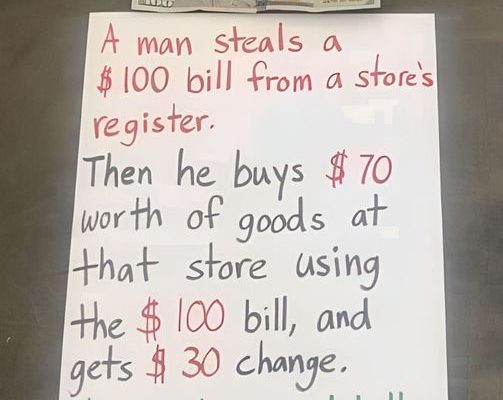
In this world, people can be divided into two categories. One group enjoys math and sometimes welcomes a challenge, while the other group often runs away at the mere mention of it.
You don’t need to be a math expert to enjoy a challenging brain teaser. That’s what we have for you, and it’s become a sensation on social media because no one seems to solve it.

Some refer to it as the $100 puzzle because it involves the amount of money a store lost when a thief stole a $100 bill, which was later used to buy a $70 item.
This has been seen by millions, sparking a significant debate among those attempting to decipher the code.
This was first posted on Twitter and presents a clear scenario. A man takes a $100 bill from the store’s cash register and then spends it to purchase $70 in items, getting $30 back in change.
The question is, ‘How much money did the store lose?’
Many comments emerged as people sought to find the real answer to this question. Some claimed the store lost $100, while others argued the loss was actually $130. They explained that the store lost a $100 bill and an additional $30 in change.
A few individuals provided a more technical response, indicating that it relied on the profit margins of the transactions.
To grasp this brainteaser completely, you need to delve into the details. While it’s simple to claim that the store lost $100 due to the theft, there’s a more intricate mathematical problem at play.
They initially lost $100 when the thief took a $100 bill, but they got that same $100 back when the thief returned it. However, since they gave him $30 in change, their total loss amounts to $30 in cash.
In addition, the store lost $70 worth of goods so the total loss was $30 in cash and $70 in merchandise. They lost $100.
This illustrates how something that appears simple can create a significant buzz on the internet.